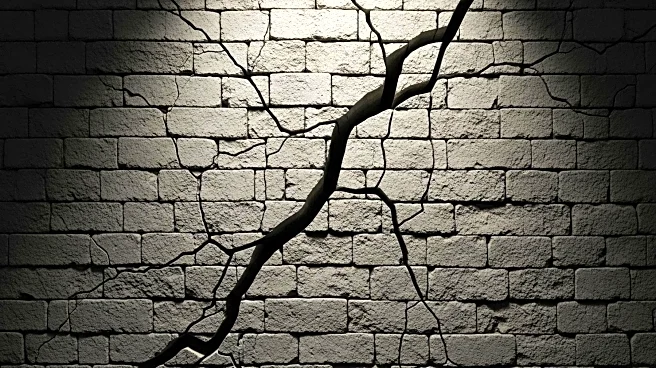What is the story about?
What's Happening?
Following the announcement of a ceasefire between Israel and Hamas, chaos has erupted in the Gaza Strip as various Palestinian factions have begun to revolt against Hamas. According to reports, clashes have occurred between Hamas gunmen and local clans in areas such as Beit Lahia and the Sabra neighborhood. The unrest has led to the reported death of the son of a Hamas official. This turmoil comes after President Trump announced the agreement on the first phase of the ceasefire, which involves the release of hostages in exchange for Palestinian prisoners. The situation in Gaza remains volatile as the ceasefire attempts to hold amidst these internal conflicts.
Why It's Important?
The internal revolt against Hamas in Gaza highlights the fragile nature of the ceasefire agreement and the complex dynamics within Palestinian territories. The unrest could undermine efforts to stabilize the region and complicate negotiations for a lasting peace. The clashes indicate dissatisfaction with Hamas' leadership and governance, potentially affecting the group's ability to maintain control. This instability poses challenges for reconstruction efforts and the establishment of a postwar government in Gaza, which is crucial for improving living conditions for its population. The situation could also impact regional security and influence international diplomatic efforts aimed at resolving the conflict.
What's Next?
The ongoing chaos in Gaza suggests that the ceasefire agreement may face significant hurdles. Key issues such as the disarmament of Hamas, the withdrawal of Israeli troops, and the establishment of a new governance structure in Gaza remain unresolved. These factors could lead to the breakdown of the ceasefire and a resurgence of conflict. Stakeholders, including international mediators and regional powers, may need to intensify diplomatic efforts to address these challenges and prevent further escalation. The situation requires careful monitoring as developments unfold, with potential implications for future peace negotiations and regional stability.
Beyond the Headlines
The revolt against Hamas in Gaza raises questions about the group's legitimacy and governance capabilities. It underscores the need for a comprehensive approach to address the underlying issues that fuel conflict in the region, including political representation, economic development, and social justice. The situation also highlights the broader implications for Palestinian self-determination and the role of external actors in shaping the future of Gaza. Long-term solutions will require addressing these complex dimensions to achieve sustainable peace and stability.















